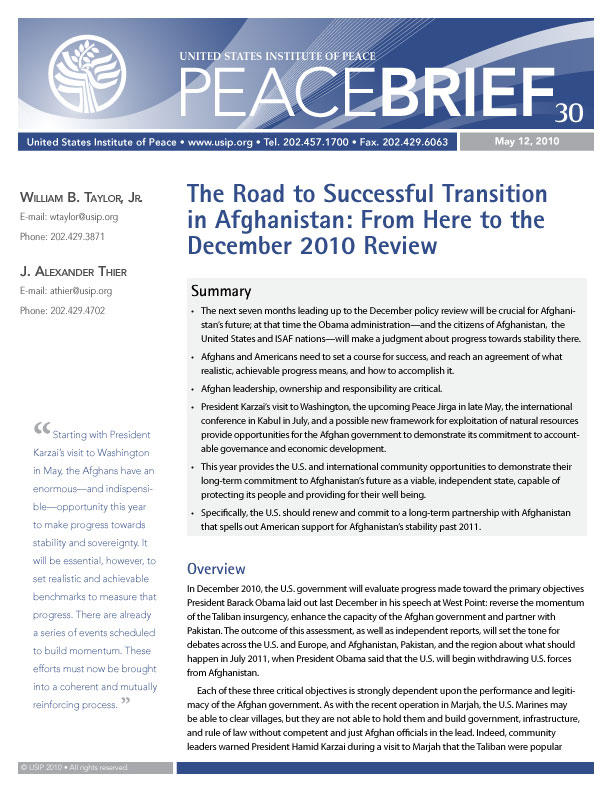The Road to Successful Transition in Afghanistan: From Here to the December 2010 Review
The next seven months leading up to the December policy review will be crucial for Afghanistan’s future; at that time the Obama administration—and the citizens of Afghanistan, the United States and ISAF nations—will make a judgment about progress towards stability there. Afghans and Americans need to set a course for success, and reach an agreement of what realistic, achievable progress means, and how to accomplish it.

Summary
- The next seven months leading up to the December policy review will be crucial for Afghanistan’s future; at that time the Obama administration—and the citizens of Afghanistan, the United States and ISAF nations—will make a judgment about progress towards stability there.
- Afghans and Americans need to set a course for success, and reach an agreement of what realistic, achievable progress means, and how to accomplish it.
- Afghan leadership, ownership and responsibility are critical.
- President Karzai’s visit to Washington, the upcoming Peace Jirga in late May, the international conference in Kabul in July, and a possible new framework for exploitation of natural resources provide opportunities for the Afghan government to demonstrate its commitment to accountable governance and economic development.
- This year provides the U.S. and international community opportunities to demonstrate their long-term commitment to Afghanistan’s future as a viable, independent state, capable of protecting its people and providing for their well being.
- Specifically, the U.S. should renew and commit to a long-term partnership with Afghanistan that spells out American support for Afghanistan’s stability past 2011.
About This Brief
This Peace Brief was written in advance of President Hamid Karzai’s visit to Washington, D.C. by William B. Taylor, vice president of the Center for Post-Conflict Peace and Stability at the U.S. Institute of Peace, and Alex Thier, director for Afghanistan and Pakistan programs at USIP, and co-author and editor of "The Future of Afghanistan" (USIP, 2009). The views expressed here are not necessarily those of USIP, which does not advocate specific policies.



